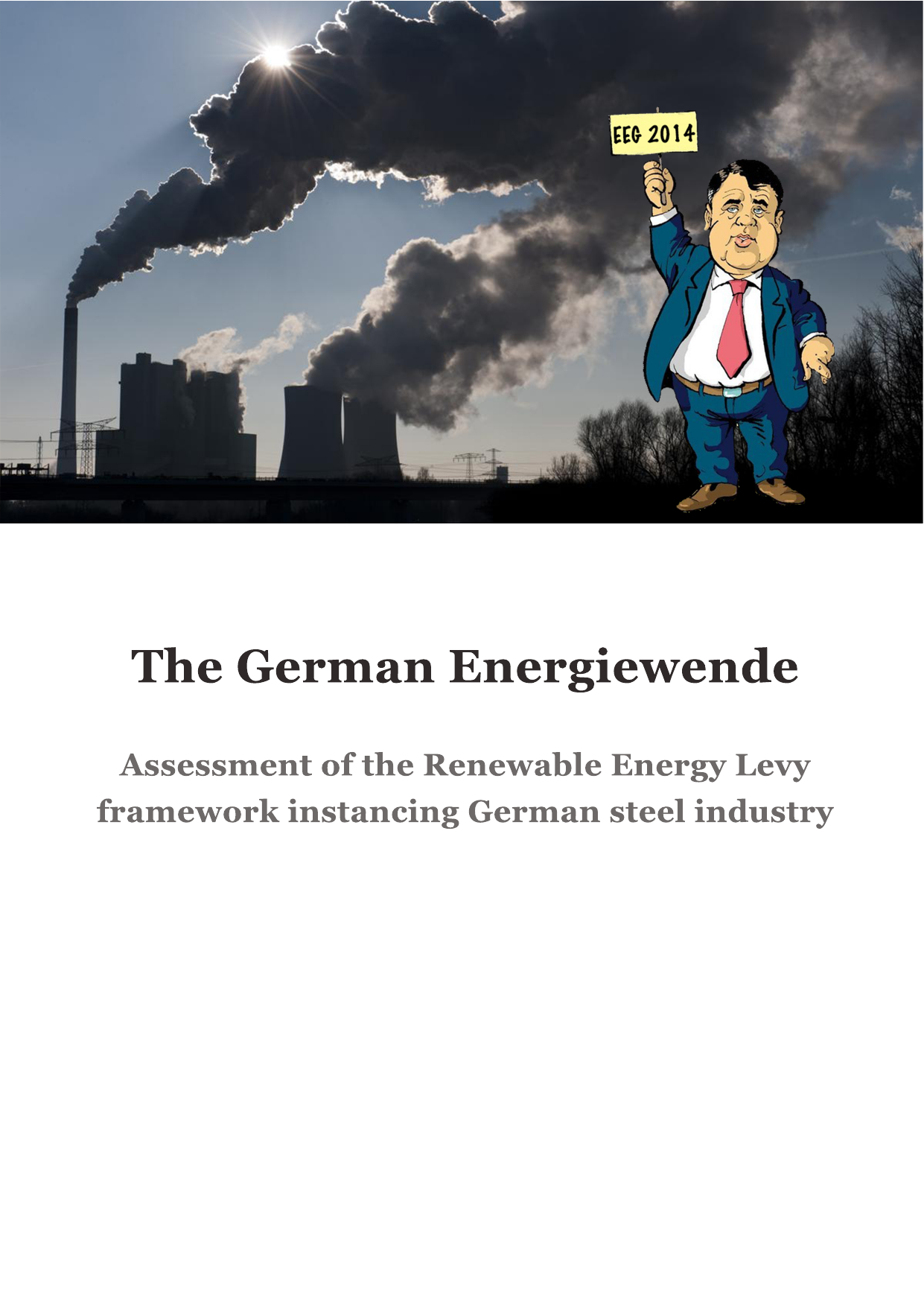
The German Energiewende - Assessment of the Renewable Energy Levy framework instancing German steel industry
Translated title
Author
Term
4. Term
Publication year
2014
Submitted on
2014-05-27
Pages
61
Abstract
Over the past decades it became evident that Earth’ s population cannot rely on electricity production from fossil fuels in the future. However, the path to a sustainable energy system has to be led by a political framework to achieve the global, European and national targets in 2050. The Renewable Energies Act has been firstly released in 2000 and is to be further developed to incorporate changes so far, especially the increase of Renewable Energies. The discussion of a fundamental modification is very current since the revised Renewable Energies Act is scheduled for 2014. In the beginning of the year, a first draft law has been released by the Germany Government. Representatives of various interest groups publish reports and analyses in order to propose amendments to the former and this draft law. This dissertation gathers and discusses suggestions and models in regards to the Renewable Energy Levy, which is the fundamental source of income to subsidise the renewables. The energy intensive industry, the steel industry in particular, displays a very important branch in Germany’ s value chain. The Renewable Energy Levy carries a high share that do not account for the promotion of Renewable Energy (RE) but for privileging industry to being exempt. Further, the electricity market cannot integrate the increasing amount of RE, which led to another financial deficit that is balanced by means of a share of the Renewable Energy Levy. Consultation of experts in this field has shown that there are viable improvements for the current situation. In summary it is reckoned that the steel industry in Germany can stay competitive on an international market. A continued special equalisation scheme for the highly energy intensive industry with minor amendments in its amount but with modification in its criteria reduces the amount of companies being exempt from paying the Renewable Energy Levy. Larger capacities of RE are obliged to be sold more demand side oriented by means of direct marketing. Domestically produced electricity from by-products is still exempt due to the Protection of Confidence. Newly installed plants can be charged partly with the Renewable Energy Levy. To ensure future efficiency investments, a certified energy management system is to be pursued and more carefully realised to safeguard a development towards a higher share of electric steel. Additionally, CO2 savings technology has to be implemented within Basic Oxygen Furnace steel manufacturing.
Documents
